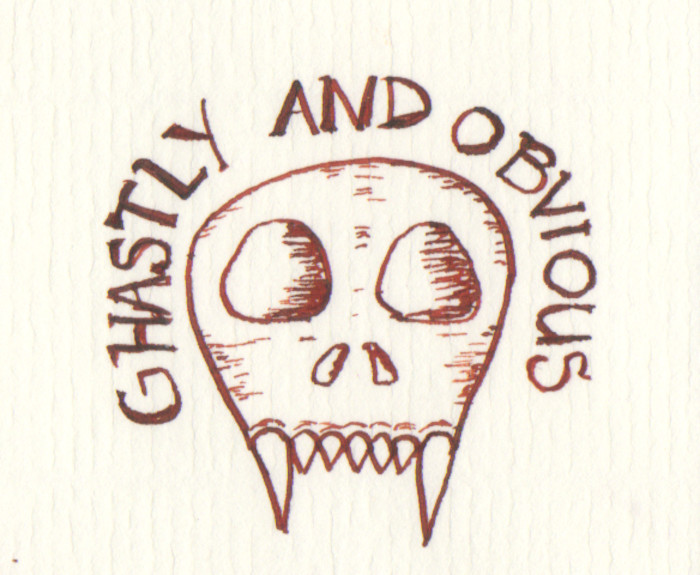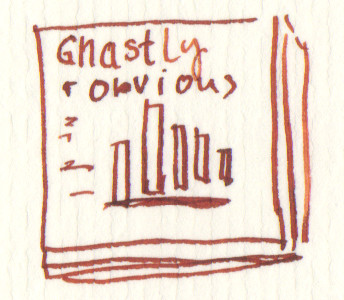The inner life manifest as supernatural in The Shining
Are the ghosts real? Yes. No. Maybe.
by
I rewatched Stanley Kubrick's The Shining (1980) this week as homework. I've been writing so much about metaphorical haunted houses and I thought the metaphor was getting a little thin. I wanted to ground it in a real haunted house. Or at least a real fictional haunted house story. I thought the movie was even better than I remembered it, more beautiful, much scarier, and much richer in meaning. However, it's not so much of a clear-cut haunted house story. My spouse, who watched it for the first time with me, found the ambiguity annoying. Are we supposed to think the ghosts are literally real? Are the characters hallucinating them? Are they a metaphor? What really happened?
Here’s how I read it, and this struck me as immediately obvious when I saw the film this time, so obvious I’m almost embarrassed to write about it. That’s why I wrote this whole intro that honestly, you could skip over and just go straight to my assertion, except I’m worried people will stay that’s basic baby stuff, everybody who knows anything about gothic will be like, no shit, of course. Anyway, here we go.

The Shining takes the inner psychological reality of the dynamics of domestic abuse and makes it visible on the outside as ghosts, visions, and supernatural powers. It doesn’t particularly heighten and certainly doesn’t exaggerate the objective reality of abuse and intimate partner violence. The inner reality of the violence is visible along with its usual outer manifestation.
Because of this double vision, it’s not exactly a fable or allegory. Nor, in my opinion, is anyone inside the story hallucinating. In as far as some characters see things that others don’t, they are merely more preceptive about the forces around them. For example, the psychically gifted child, Danny, sees the ghosts and hallways of blood before anyone else does, sensing the danger inherent in his parents violent relationship. Eventually, Wendy, the mother, sees them, too, but just as it takes much longer for her to accept the reality of the danger she’s in from her husband, so it it takes her longer to perceive the ghosts and ghastly visions.
I don’t want to analyze every supernatural event in the film, but let me give a few examples.
The child who knows more than he should #
Danny’s imaginary friend, Tony, appears after his father injures him in a drunken rage–injures him badly enough that he has to be taken out of school. Tony seems older than Danny, warns Danny of danger that Danny could not perceive by normal means, and takes over Danny’s entire personality when things are too scary for Danny to deal with.
Children in abusive families often become hypervigilant as a survival mechanism. They are more attuned to the subtle undercurrents between family members than normal, and might seem older than they are because, frankly, they have seen some shit. Sometimes they withdraw emotionally, or even disassociate. Danny’s psychic powers are a literalization of that hypervigilance, and the somewhat ominous Tony is a supernatural literalization of both the adultificaiton and dissociation.
As an aside, it’s a classic tenet of poltergeist studies (if one may call it that) that poltergeists are often the manifestation of the uncontrolled psychic abilities of children going through a traumatic period in their lives, often puberty. So there’s a real resonance with the abused Danny developing his own psychic frenemy.
The woman who doubts her own sanity #
Feeling like you’re going crazy–and specifically being made to feel like you’re going crazy by another person–is a common inner experience of abuse victims. Throughout the film, Wendy puts up with Jack’s mercurial moods and bizarre “rules” for her, which is just the normal abusive stuff. You might almost miss it, or just wonder why Wendy’s such a pushover if you aren't’ tuned in to abuse dynamics.

In the latter half of The Shining, when the ghosts have really started acting up, an incident draws that gaslit feeling to the fore. Wendy sees marks on Danny’s neck where someone has attempted to strangle him. First, she blames Jack, who has after all severely injured Danny before. Then, Danny tells her that a mysterious woman in room 237 attacked him, and she returns to Jack for help.
Jack, who has at this point be getting drunk with a malevolent ghost bartender, goes to the room, and finds the mysterious woman. At first she is beautiful and seductive, and he begins to kiss her. Then he sees her in a mirror and she is both old and literally rotting, and so, horrified he runs away. But when he returns to Wendy, he denies having seen the woman who attacked Danny, denies having attacked Danny himself, and then literally gaslights her by saying Danny must have done it himself. As viewers, we get the double disorienting irony: Wendy was wrong about Jack hurting Danny this time, but was right to fear that he’ll hurt her and Danny again, and was right in thinking that Jack was lying to her. The confusion that the ghosts introduce to our experience as viewers gives a taste of the feeling of being gaslit.
Also, way that Wendy is sort of hapless and annoyingly floppy is the way a lot of domestic abuse victims feel from the outside. Why don't you just leave? Why do you doubt yourself? This guy is clearly going to kill you, oh my god just grab your kid and run. But she doesn't. She goes to a fucking isolated mountainside hotel on an Indian burial ground. Because she has been ground down in an abusive relationship and no longer believes herself.
The man possessed by a hidden evil #
Abusers often seem to flip back and forth between two selves, one sweet and kind, the other temperamental, cruel and violent. It is as though they were possessed. “I was not myself,” they say in defensive apology, or “I was drunk, and so I was not myself.”
Except, of course, a person cannot be anything other than who they are when they act, as it is our actions that constitute who we are. There is no hidden core of self, untouched by what we do, so that we can stand aside from what we have done and disavow it. But anyway, enough existentialism.
The Shining gives that that defensive fake apology double vision with ghosts and alcohol. Jack chooses to drink alcohol again and embrace the worst part of himself–so far so normal. Except in this case, the alcohol is served to him by a malevolent ghost, who encourages Jack’s misogynistic thinking. The ghosts exploit Jack’s existing flaws, bringing him back to alcoholism, encouraging his existing violent tendencies, and drawing his (perhaps societally normal) misogyny to its extreme logic where he must “correct” his wife and child by murdering them.
Instead of being possessed by the demon drink to acts of violence, it’s literal evil ghosts–though things get complicated here because do they possess him? Or do they just persuade him? Or are the ghosts just a manifestation of the hidden evil already within him? This, I think, is the most ambiguous of the ghostly manifestations, on purpose, because it leaves some room for moral choice. Still, by the end of the film, he does seem if not a man possessed, at least like a man possessed.
And, the inner life of abusers aside, from the outside if you only knew their nice self, when they turn it certainly looks and feels like they are possessed.
Real ghosts? Real how? #
So, to answer the question, are the ghosts and other supernatural events real? They are real to the characters in the story. But as viewers, I think we should take them as a dream like visualization of the dynamics of domestic abuse, intimate partner violence, and finally, family annihilation.
Thus, I’m not too worried about questions like what really happened in the Overlook hotel in the past, or how Jack ended up in the picture, or what Tony really is. It’s not that important that all those questions are answered completely, with every lose end tied up. It would be like asking a dream to make logical sense. It only has to make emotional and thematic sense.
Coda #
There’s a lot more I haven’t touched, like the Indian burial ground thing, and the racial dynamics, and America’s original sin, but I’m pretty sure someone else has written that, definitely. Take it as read I’m aware that a movie like The Shining has a lot of layers of possible interpretation and I’m just focusing on one here not because it’s the only right one, but because it’s the one that struck me particularly.
